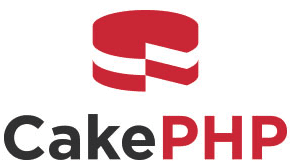- Home
- Website Development & Designing
- What is CakePHP?

CakePHP is a robust, open-source web application framework that has gained immense popularity among developers for its simplicity, flexibility, and efficiency. In this article, we’ll delve into the history, features, and applications of CakePHP, exploring why it stands out in the competitive landscape of PHP frameworks.

CakePHP, established as a PHP framework in 2005, has become a cornerstone in web development. Known for its adherence to the Model-View-Controller (MVC) architectural pattern, CakePHP empowers developers to create scalable and maintainable applications with ease.
In the ever-evolving realm of web development, CakePHP stands out as a reliable choice for developers seeking a balance between simplicity and functionality. Its extensive features and seamless integration have made it a go-to framework for both beginners and seasoned developers.
CakePHP originated from the desire to simplify and streamline PHP application development. The framework has undergone significant evolution since its inception, with a dedicated community contributing to its growth. Understanding the historical context helps developers appreciate the framework’s journey and continuous improvement.
Over the years, CakePHP has achieved significant milestones, from version releases to the introduction of groundbreaking features. Examining these milestones provides insights into the framework’s commitment to staying relevant in the dynamic landscape of web development.
One of CakePHP’s core strengths lies in its adherence to the MVC architecture. This design pattern enhances code organization, making it easier for developers to manage and maintain their applications. We’ll explore how this architecture contributes to CakePHP’s efficiency.
CakePHP simplifies database interactions through its robust data abstraction layer. Developers can perform tasks such as data validation with ease, ensuring the integrity of information in their applications. We’ll delve into how these features simplify the development process.
Security is paramount in web development, and CakePHP doesn’t disappoint. With built-in security features, the framework assists developers in safeguarding their applications against common vulnerabilities. We’ll discuss the importance of these security measures in the digital landscape.
CakePHP’s code generation and scaffolding capabilities significantly accelerate development time. These features automate repetitive tasks, allowing developers to focus on the unique aspects of their projects. We’ll explore how these tools enhance productivity.
Getting started with CakePHP is a straightforward process. We’ll guide you through the installation steps, ensuring that even beginners can embark on their CakePHP journey with confidence.
CakePHP’s flexibility extends to its configuration and customization options. We’ll explore how developers can tailor the framework to suit the specific needs of their projects, providing a personalized development experience.
Maintaining consistent coding standards is crucial for collaboration and code readability. CakePHP promotes best practices that contribute to cleaner, more maintainable code. We’ll discuss these standards and their impact on the development process.
Efficient database management is a cornerstone of successful web applications. CakePHP offers tools and practices for effective database handling, ensuring optimal performance. We’ll delve into these best practices and their implications for developers.
In the era of cyber threats, prioritizing security is non-negotiable. CakePHP incorporates security practices to protect applications from common vulnerabilities. We’ll outline these practices and their significance in the context of web development.
While several PHP frameworks compete for developers’ attention, CakePHP distinguishes itself through specific features and design choices. We’ll compare CakePHP to other popular frameworks, highlighting its unique advantages.
Understanding the distinctive advantages of CakePHP is essential for developers seeking the right framework for their projects. We’ll explore what sets CakePHP apart and why it remains a preferred choice in the PHP development landscape.
CakePHP has powered numerous successful projects across diverse industries. We’ll showcase notable examples, demonstrating the framework’s versatility and adaptability to various development needs.
Certain industries find particular value in CakePHP’s features and capabilities. We’ll explore how CakePHP contributes to the success of projects in industries such as e-commerce, healthcare, and more.
CakePHP continues to evolve, with regular updates introducing new features and improvements. We’ll highlight recent updates and their impact on the framework’s functionality and performance.
Looking ahead, CakePHP enthusiasts can anticipate further advancements. We’ll discuss potential developments and how they may shape the future of CakePHP and web development.
Optimizing performance is crucial for delivering seamless user experiences. We’ll provide practical tips and techniques for developers to enhance the performance of their CakePHP applications.
No development process is without challenges. We’ll explore common debugging and troubleshooting scenarios in CakePHP, offering insights and solutions to keep projects on track.
The strength of CakePHP lies in its vibrant community. We’ll explore the community dynamics, highlighting the resources available for developers to connect, learn, and grow within the CakePHP ecosystem.
From documentation to forums, CakePHP offers a wealth of resources for developers. We’ll guide you through these valuable assets, ensuring you can leverage them to enhance your CakePHP development skills.
Real-world case studies provide tangible evidence of CakePHP’s effectiveness. We’ll delve into specific success stories, showcasing how CakePHP has contributed to the development of innovative and impactful projects.
Every framework comes with its challenges. We’ll identify common hurdles in CakePHP development and provide practical solutions to empower developers to overcome these obstacles.
Facing challenges head-on requires effective strategies. We’ll discuss proven approaches to navigate and overcome challenges in CakePHP development, ensuring a smoother development process.
As technology advances, so does the role of frameworks like CakePHP. We’ll make predictions about how CakePHP might continue to shape the landscape of web development in the coming years.
Exploring emerging trends and possibilities is vital for staying ahead in the rapidly evolving field of web development. We’ll discuss potential trends that may influence CakePHP’s trajectory.
In conclusion, CakePHP remains a robust and versatile framework that has stood the test of time. From its inception to the present, CakePHP has continuously evolved to meet the dynamic needs of web developers.
For those considering CakePHP for their next project or seeking to enhance their development skills, this article serves as a starting point. We encourage further exploration of CakePHP’s documentation and community resources.
© 2013 - 2024 Foreignerds. All Rights Reserved